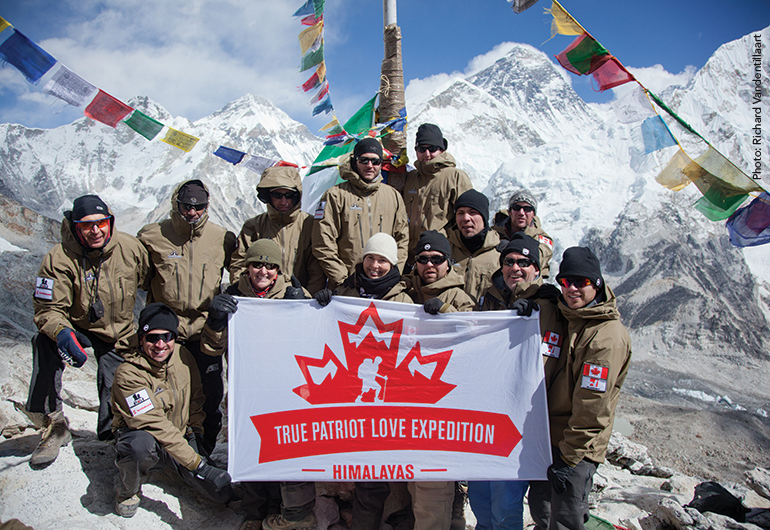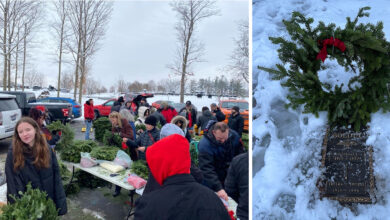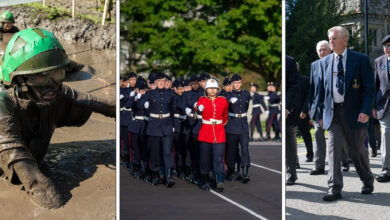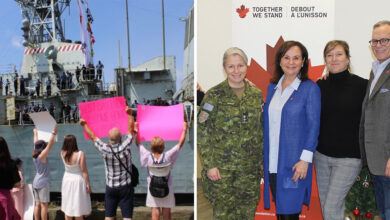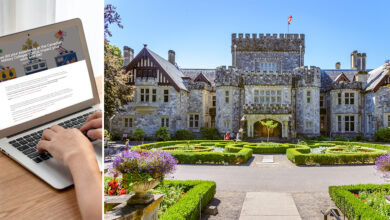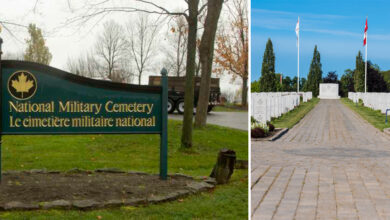 Throughout the month of October, as you were preparing your house for winter and making Thanksgiving plans, a team of Canadian business leaders and wounded war veterans faced the towering peaks of the Himalayas. This ambitious expedition was funded by the True Patriot Love Foundation in an effort to raise funds and awareness for the soldiers who are still experiencing the adverse effects of the war in Afghanistan.
Throughout the month of October, as you were preparing your house for winter and making Thanksgiving plans, a team of Canadian business leaders and wounded war veterans faced the towering peaks of the Himalayas. This ambitious expedition was funded by the True Patriot Love Foundation in an effort to raise funds and awareness for the soldiers who are still experiencing the adverse effects of the war in Afghanistan.
The Himalayas expedition was a particularly challenging one for the Afghanistan war veterans involved. Many of the soldiers in the team have both mental and physical wounds. The hardship began for them as soon as the team landed in Kathmandu, Nepal, as several of the veterans experienced flashbacks to Afghanistan.
Soldier Peter Burcew recognized the “familiar smell of burning trash [and the] dead cow floating in the river.” In addition to the everyday struggle with the mental and physical ramifications of the war, it was a challenge for these soldiers to face the startlingly familiar environment. Kathmandu was only the first step in a long journey, and yet, it was also the first step in Veteran David MacDonald’s healing process. While watching the morning worship at the second-largest Buddhist temple in the world, he said he saw the “organization in the chaos: the morning’s worship brought me some closure for what I experienced in my overseas deployment.”
One of the first challenges faced by the team was hygiene, as expedition manager Hilary Coles explained. “Cleanliness in a third-world environment was quite difficult. There are obviously different standards, so keeping clean and healthy was a top priority for the team to have a successful summit.”
MacDonald agreed: “I had to take on nearly OCD levels of hand-washing and sanitizing [because] if one of my teammates got sick, the whole team would go down with them.” They even refused to rely on local food in an effort to “minimize the chance of a virus invading the team”, explained Shaun, Chairman of True Patriot Love,
Even the Afghanistan war veterans, after all they faced in war, described the month-long climb as the hardest challenge they ever faced. When climbing through the Gateway to Everest, MacDonald admitted that the 800-meter trek would have been nothing in the army. However, combined with the altitude and the rock face, the 800 meters kicked his butt that day. “Despite all my military experiences I was tested beyond what I thought were my limits.”
Another team member, Christopher Drewes, painted a very visual picture of the struggle when he outlined his climbing experience. “Three steps, puke, dry heave, repeat!” Coles noted that the team was in good hands though, as the Sherpa guides went above and beyond in caring for each member of her team. “The Sherpa guides had over 80 Everest summits between them.” With such experienced guides, the True Patriot Love team was able to successfully climb to the summit of Island Peak without losing any members of the team.
The hardship faced by the team was intertwined with moments of utter beauty and majesty, which some said moved them to tears. Francis described his initial reaction to the mountains, “There was something magical in the silence as the sun rose above the fluttering prayer flags. It seemed like the perfect way to begin the journey up to Everest.”
The peaks of the Himalayas had something to teach each one of the climbers. Even as MacDonald struggled with his leg injury from the war, the expedition had a positive effect on him. “I found spirituality within these mountains and I can already feel myself opening up to more.”
The team physician, Dr. Markus Besseman, knows that his life will be affected by the experience. “I think that the hardships our team has collectively endured during this remarkable adventure will reawaken a zest for life that often gets lost in the frenzied pace of North American life.”
One lesson Peter Burcew learned was an appreciation of every little detail, as “literally, each brick and bottle of pop was brought in on the backs of porters on these same perilous roads” to the little settlements nestled in the hills. No doubt the lessons learned on this expedition will resound in their everyday lives as the team returns to their homes.
A CBC film crew captured the entire experience on tape. While the repetitive film shoots for the documentary made the days long, the team definitely appreciated their contribution to the expedition.
“Having a professional crew present to capture all the small (and big) triumphs of each day provided us with footage that will remind us of the special journey for the rest of our lives,” said Cole. “And indeed, this documentary will lend you an opportunity to witness the great feat as well as experience the journey alongside the team and learn about the strength and dedication of the men and women who serve us every day.”
CBC’s “March to the Top” will air on January 27th on the documentary channel, and again on January 30th on CBC-TV. It is a film you will not want to miss, as you will witness the team as they fight against altitude and their own bodies in order to conquer a towering mountain. It is a story of much tenacity, ambition, hardship, and the valuable lessons learned by overcoming the ultimate challenge. Team member Corey Hatt described the experience of climbing Island Peak most aptly when he stated, “the adversity of overcoming the head wall and making it to the top can only be explained by the following: God’s grace, sheer stubbornness and the camaraderie of my teammates pushing ahead above me and those coming up behind.”
To learn more about this ambitious expedition, visit March to the top or expeditionhimalayas.ca.
Tabitha Turner lives in Petawawa with her fiancé. An aspiring editor, she is very passionate about the arts and literature, and is forever dabbling with some kind of writing.


